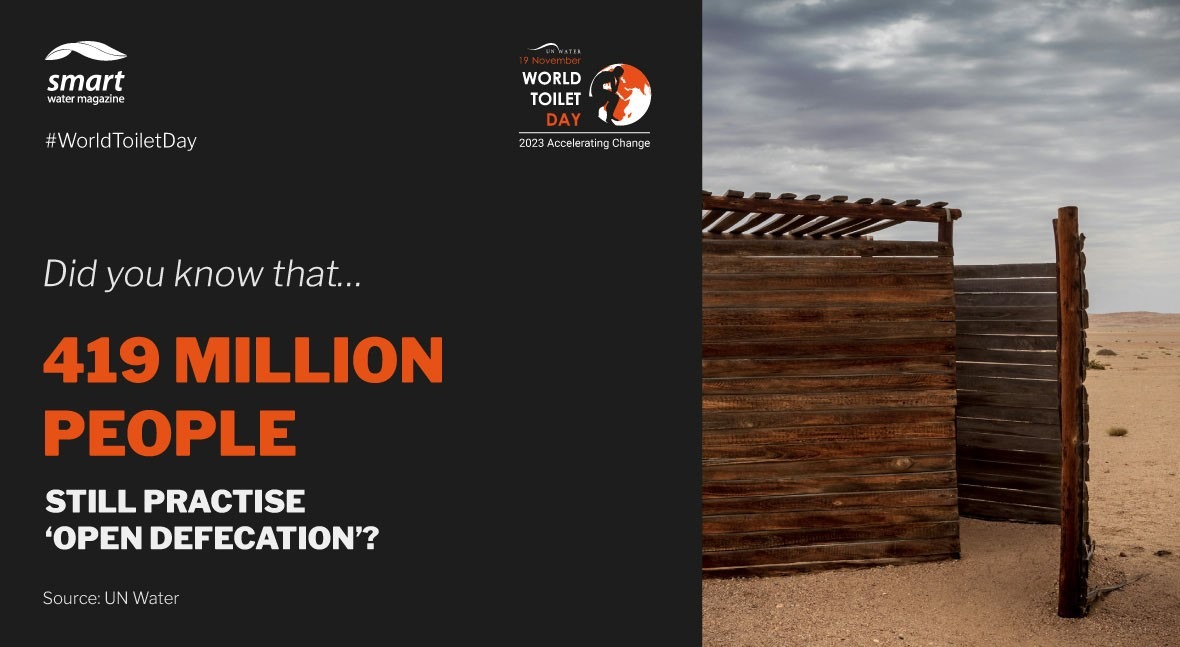World Toilet Day 2023: Accelerating change

World Toilet Day, celebrated every 19th of November, is an annual United Nations observance that aims to shed light on the importance of having access to proper sanitation and the vital role of toilets. As the UN-Water highlights this year, “a toilet is small but mighty.”
We are quickly approaching 2030 and the global targets for clean water and sanitation, including universal and equitable access to safe sanitation and hygiene, which are set under the Sustainable Development Goals, will not be met based on current progress. According to data released by WHO and UNICEF, the current rate of progress will see centuries before universal access to basic sanitation and water is achieved. Today there are still 3.5 million people living without safe toilets and 419 million people still practising “open defecation”. In these situations, diseases spread, killing 1,000 children under five every single day. In order to meet the sanitation target of Sustainable Development Goal 6 (SDG 6), the UN stresses that the world has to work, on average, five times faster.
Follow this year's campaign actions on Twitter with the hashtags #WorldToiletDay
Sustainable Development Goal 6 is not the only goal that will not be achieved by 2030. In July 2023, UN Secretary-General António Guterres said that “the annual SDG funding gap has risen from $2.5 trillion before the pandemic to an estimated $4.2 trillion”. Many countries are now facing ever-growing debt, resulting in an inability to realize the 2030 Agenda for Sustainable Development.
In order to meet the sanitation target of Sustainable Development Goal 6 (SDG 6), the UN stresses that the world has to work, on average, five times faster
This is why, this year’s theme for World Toilet Day is “accelerating change” and an appeal to the world’s population, not only governments, businesses and organizations, to do whatever they can, no matter how small, to help tackle the sanitation crisis. Using an ancient parable of the hummingbird, who in the midst of a huge forest fire, carried droplets of water in its beak to help put out the fire, the United Nations is calling all of us to take action now to aid in solving this worldwide issue. “The more hummingbirds there are, the bigger the impact.”
The UN has also called on global authorities, organizations and companies to do their part to achieve this ambitious goal. A possible way of doing so, is to commit to the Water Action Agenda, a collection of water-related voluntary commitments to accelerate SDG 6, adopted in March during the UN 2023 Water Conference.
Although there is a palpable need to act faster to ensure water, sanitation and hygiene (WASH) for all, we have witnessed this year numerous breakthroughs in terms of research and developments. Innovative technologies are increasingly becoming crucial in addressing sanitation challenges. Waterless and self-contained toilets and smart sanitation systems are revolutionizing the way we manage waste and ensure clean and safe sanitation facilities, providing sanitation opportunities to all. One example that springs to mind is Jonny Harris’s recreation of a modern toilet. In South Africa, he created a modern toilet that will clear waste reliably on just 2 litres of water. It has come a long way from the first flush toilet which was designed in 1592 and flushed with 26 litres of water.
World Toilet Day 2023 serves as a rallying point for a collective effort to prioritize sanitation on a global agenda. By addressing persistent and new challenges, such as the threat of climate change, and making this too-often taboo subject visible, we can pave the way for a future where proper sanitation is a fundamental human right for all. We must all play a part in solving the sanitation crisis; however small and insignificant it may seem, it makes a difference and helps speed progress.







